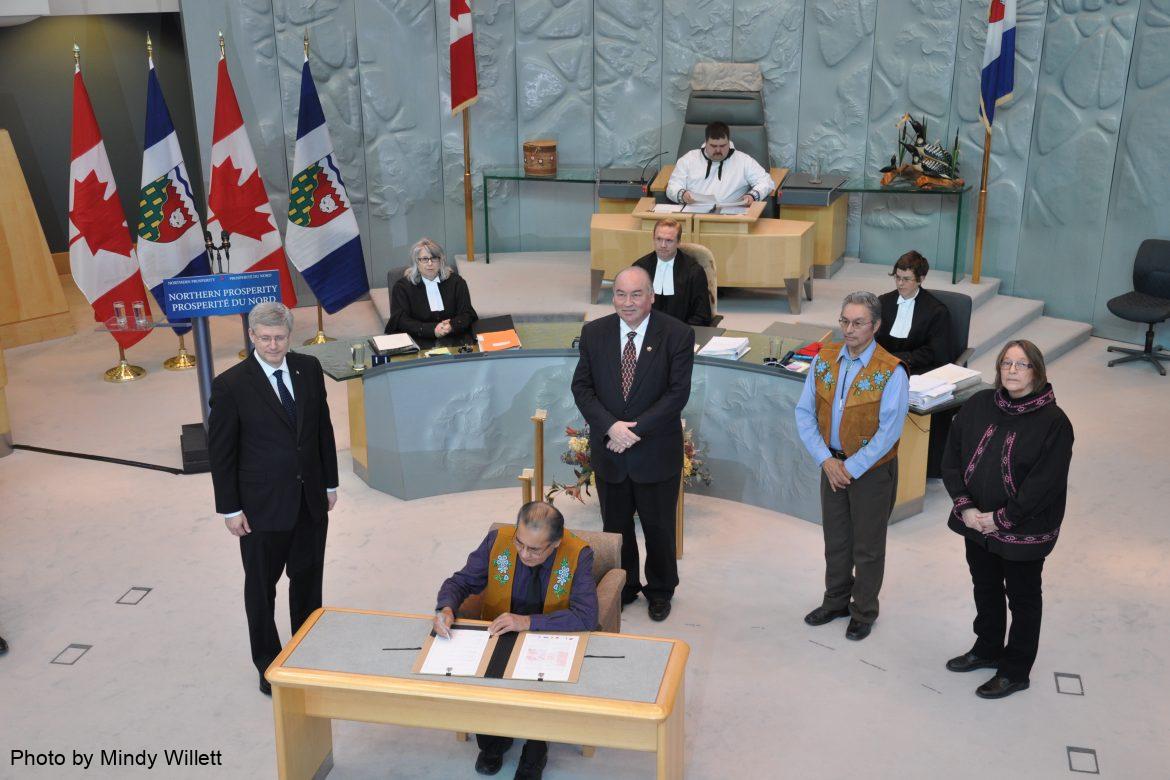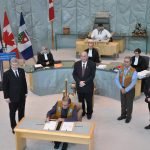2014
Devolution NWT
In 1967, the formal seat of the NWT government left Ottawa and moved to the new capital city of Yellowknife. The territorial government gradually gained more administrative control in the north, including the portfolios of education, health care, renewable resources, local government and highways. Yet for decades, the GNWT did not have control of the majority of territorial lands, the mineral and oil resources in the ground, nor the royalties collected from their extraction. The Government of Canada maintained control of the surface and subsurface lands and, in doing so, limited the population’s say on how those lands could be used.
In March of 2004, the Government of Canada, the NWT Government, and the Aboriginal Summit (a caucus of NWT Indigenous Governments) signed a Devolution Framework Agreement. Despite the small population, the GNWT wanted to take on more province-like responsibilities that would reflect Indigenous Governments’ control over regional areas and better serve the people of the Northwest Territories.
In 2010, Premier Floyd Roland told the legislative assembly, “Our strong belief is that the NWT residents must have the capacity and authority to protect and manage public lands in the Northwest Territories to ensure that our Territory’s abundant resources are developed in a sustainable and responsible manner and that NWT residents realize the financial and economic benefits from development in their territory.”
Agreements-in-Principle were signed with the Inuvialuit Regional Corporation, Northwest Territories Métis Nation, Sahtu Secretariat Incorporated, Gwich’in Tribal Council and the Tłįchǫ Government.
After nine years of negotiating, the Northwest Territories and the Government of Canada came to an agreement in March 2013, with devolution set to take place by 2014. Prime Minister Stephen Harper and his government believed the agreement gave the NWT an “innovative, practical and effective governance model for the territory that will contribute to jobs and economic growth.”
The success of the Northwest Territories Devolution Act will rest in how well the Indigenous and NWT governments can now cooperate to overcome the new challenges developing in the 21st century.


